Curious about how to keep yellow sac spiders out of your home for good? These spiders can be a common nuisance, especially during the fall and winter months when they seek shelter indoors.
The best way to get rid of yellow sac spiders involves a mix of cleanliness, sealing entry points, and using non-toxic repellents. For practical tips and strategies to manage these spiders effectively, read on.
Key Takeaways
- Yellow sac spiders enter homes through small gaps, so sealing them and reducing food sources can help keep them out.
- When sprayed near doors, windows, and cracks, natural repellents can repel spiders, while sticky traps catch them in common pathways.
- Regular cleaning and vacuuming in attics, garages, and storage rooms can remove webs and hiding spots.
- Bug sprays and pest control services are helpful when natural methods fall short, especially in high spider activity or bite concerns.
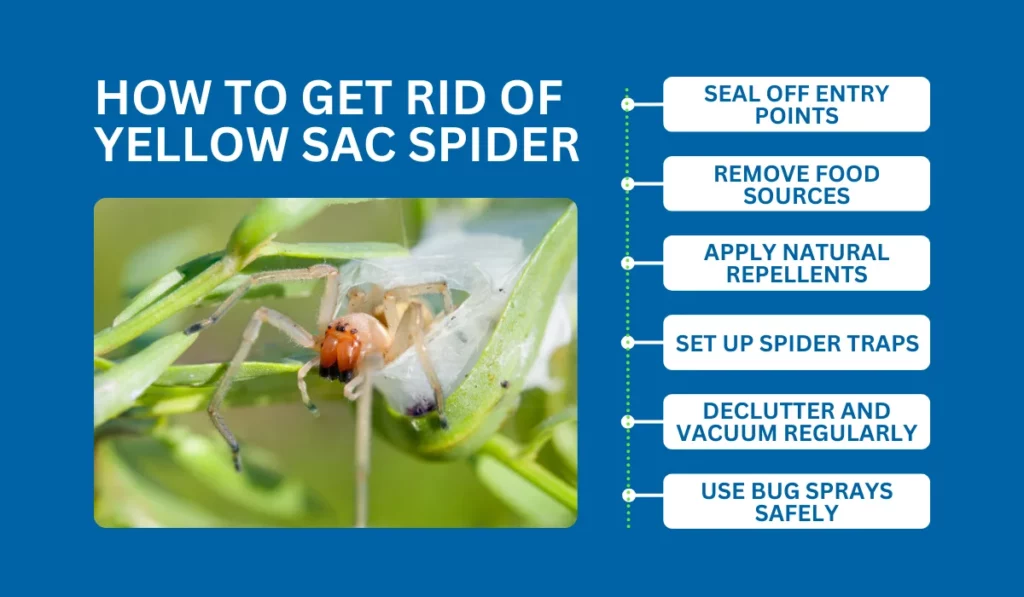
1. Seal Off Entry Points
Yellow sac spiders often enter homes through small gaps. Sealing these entry points is a straightforward way to keep them out. As homeowners, you can begin by inspecting window sills, door frames, and the corners of walls.
Caulk or weather stripping can help fill cracks and crevices where spiders might get in. This method prevents not just spiders but other insects, like black widow, too.
2. Remove Food Sources
Spiders are drawn to locations where small insects are abundant. Removing these insects reduces their presence. Small insects mostly find their way inside through holes and are attracted to crumbs and waste. So, regular cleaning can help to cut down on these food sources.
Outside, keeping woodpiles and leaves away from the home (at least ten feet) helps reduce the attraction.
3. Apply Natural Repellents
Natural repellents offer a DIY solution for those looking for options with no harmful active ingredients. Some essential oils, such as peppermint or lavender, can repel these spider species. A mix of essential oils and water sprayed around possible spider pathways has proven effective for some homeowners.
These house spiders generally avoid strong scents. So, focus on areas like doors, windows, and crevices.
4. Set Up Spider Traps
Spider traps can be an efficient way to catch these critters. Sticky traps placed in corners and suspected pathways lure spiders without danger to humans or pets. Yellow sac spiders are active at night, so setting up traps where they’re most visible can offer insight into their routes.
These traps need proper placement. Common spots include under furniture or at the back of storage closets.
5. Declutter and Vacuum Regularly
Regular decluttering and vacuuming create a less inviting environment for spiders. Like many other types, yellow sac spiders look for places that offer shelter and food. Handling clutter helps to limit their hiding places and nesting spots. Vacuuming removes spider webs and egg sacs, stopping further reproduction in homes.
By thoroughly vacuuming areas like garages and attics, along with regular rooms, you can cut down potential nesting zones.
6. Use Bug Sprays Safely
When natural methods are insufficient, bug sprays become a consideration. It’s important to follow instructions on the labels to ensure safety within homes. Apply sprays along baseboards, window sills, and entry points to create a barrier against these arachnids.
While sprays can offer relief, they should not be a singular approach for long-term control. Consider using it in tandem with sealing cracks and natural repellents.
 1st pest control service just $49
1st pest control service just $49
Must schedule service online.
Act now. Limited time offer.
How to Prevent Future Yellow Sac Spider Infestations
Maintain Cleanliness in Key Areas
Keeping living spaces clean is important in yellow sac spider control. Since they’re drawn to cluttered areas, especially those with many hiding spots for spiderlings, cleaning can remove hiding places.
Remove piles of unused items to limit their shelter options indoors. Outside, keeping lawns trimmed and gardens tidy reduces outdoor hiding spots, further lowering the chance of indoor confrontations.
Keep Indoor Spaces Well-Lit and Dry
To make indoor spaces less appealing to spiders, keep them dry and well-lit. Use dehumidifiers in damp areas like basements to reduce humidity, which deters pests.
Open curtains and blinds to let in natural light. Using yellow or sodium vapor light bulbs outdoors reduces attraction to insects, which, in turn, deters the spiders as they follow their prey.
Check for Signs of Activity and Reassess
Regular inspection for signs of a yellow sac spider infestation is crucial. Look for small silk sacs in corners of walls or small webs, especially in undisturbed areas like closets and behind furniture.
Knowing what yellow sac spiders look like can also help. Identify them by their size (0.08-0.12 inches) from other species, like brown recluse spiders (0.16-0.20 inches).
Care should be taken as they can deliver a painful bite. If bitten, check the bite site for any unusual reactions, and seek medical attention if lesions or other symptoms develop.
Hire Professional Pest Control Services
When do-it-yourself measures fail and the fear of yellow sac spider bites grows, calling professionals may be necessary.
At Simple Pest Management, our pest control experts can identify specific attractants and better-targeted areas for treatment. We have tools and treatments not available to the general public that can tackle spider problems comprehensively.


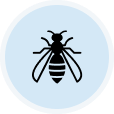
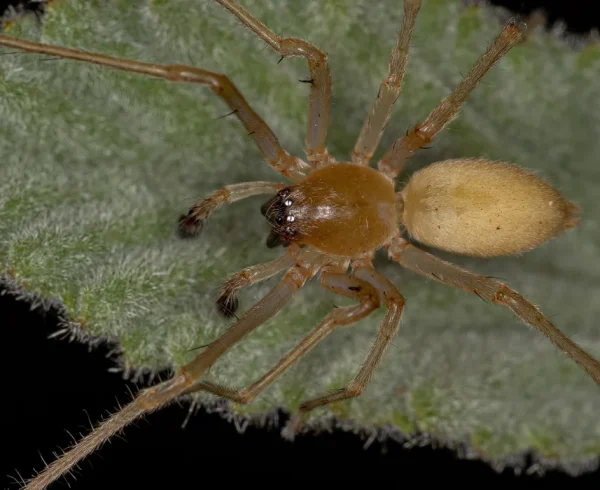
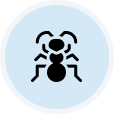
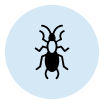

 You’re supporting a small, local business
You’re supporting a small, local business


